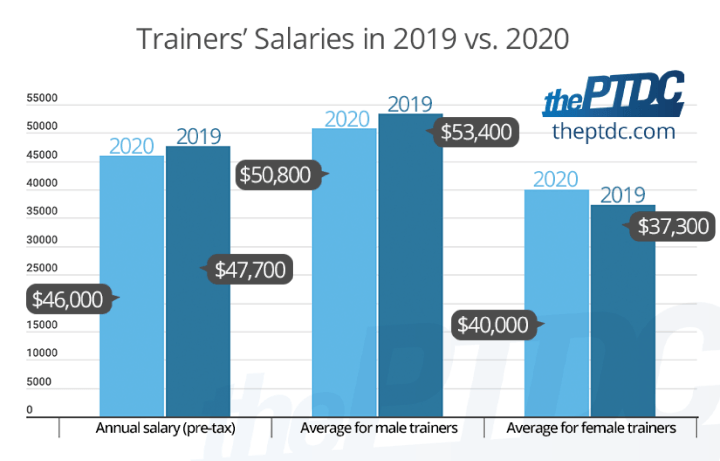
There are many workouts that can help you build muscle quickly. Some are more intense than others, but they all work the same muscles. You need to mix up your workouts. You should not train chest and back all at once. Instead, train your biceps AND triceps simultaneously. Drop sets can be used to increase intensity and decrease training volume. This prevents overtraining and muscle catabolism.
A combination of exercises will give you a more effective workout
Complex exercises target multiple muscle groups at once. They are known for increasing muscle strength and muscle mass as well as improving intermuscular coordination. As a result, these exercises are especially beneficial for athletes. The reason for this is simple: they make the body perform better. They can also increase coordination, balance, movement efficiency, and coordination.
You can also avoid injury by using them. A good fitness professional can show you how to properly perform compound lifts. Proper technique helps you avoid injury and burnout.
Lifting heavy weights stresses your body
There are many benefits to lifting heavy weights, but you shouldn't believe the myth that huge weights will make it impossible to build muscle fast. Both heavy and light weights can have similar results. This is due to how the body responds to the load. Heavy weights can increase muscle size by stressing muscles and triggering muscle repair. This stimulates new muscle cell growth. You will get the most out your lifting sessions if you lift heavy weights for 3 to 6 sets and have low- to medium rest periods. You should rest between 30-60 seconds after each set.

While this can be a good thing for muscle growth, it can also cause injuries if you are not careful. You should avoid pushing yourself too hard after an injury. Even if there isn't a major injury to your body, you should rest your muscles so you can reevaluate how much weight you are able to lift.
Lifting heavier weights causes water retention
When you are working out, you may notice that you have excess water in your muscles. Water retention during workouts is caused by heavy weights. You should avoid lifting too much weight for your muscles. Each exercise should be limited to 12 repetitions. While you don't necessarily have to succeed, it's important to be able to achieve some success.
The good news is your body will become slimmer if it lifts weights and exercises regularly. Your weight may fluctuate by a few lbs each day due to newly gained muscle. This is normal, as your muscles are often subjected to stress or inflammation during exercise.
Lifting heavier weights can cause your body to be stressed.
To avoid injury and maximize muscle growth, weightlifting requires that you know the proper lifting technique. It is possible to build muscle by lifting heavierweights for fewer repetitions. However, it is equally important to properly rest to avoid chronic stress and fatigue. Your body is your best friend. Talk to your doctor about the right weight-lifting program.
Always start with lighter weights. As your fitness and strength improves, you can increase the weight. Remember that your strength is limited and your progress will be slower when you first start lifting weights. This is because most of the muscular wiring has already been laid down by the time you hit the top of your rep range.

Lifting heavier weights will increase your workout intensity
When lifting heavier weights, you are creating a higher challenge for your muscles. You should increase the weight slowly if you are new to lifting. Make the last two or three repetitions of each set as difficult and challenging as possible. This way, you'll challenge your body's ability to grow and repair muscle tissue.
Your muscle growth will be increased if you lift heavier weights. This causes your muscles fibers to grow faster. Hypertrophy is the name of an effect that causes an increase in the muscle tissue's cross-sectional size. Studies have shown that long-term heavy resistance training can stimulate the growth of fast-twitch type-2 muscle fibers.
FAQ
Are there any exercises that I shouldn't do or should I?
Before you begin any new exercise regimen, make sure to check with your doctor. You might have injuries or conditions that make it impossible to do certain types of exercise. Certain activities require special equipment and training. For example, swimming requires a swimsuit and pool access.
What happens if my sleep is not enough?
Lack of sleep means that your brain does not receive enough signals to regulate hormones. As a result, your body may become more hungry and can gain weight. Sleep deprivation can also lead to excessive weight gain.
Is it safe for me to exercise in cold temperatures?
It's a good idea to exercise outside as often as possible. However, the temperature of the air is not the only thing that can determine whether you are safe to exercise outdoors. Wind speed, humidity, precipitation, and visibility also play a role. Layers of clothing will protect you from rain and wind chill if you exercise outdoors in inclement climates.
Statistics
- An estimated 110,000 deaths per year could be prevented (cdc.gov)
- One study showed that adults who watch more than 4 hours of television daily had an 80% higher risk of death from cardiovascular disease. (heart.org)
- Physical activity confers the following maternal and fetal health benefits: a decreased risk of pre-eclampsia, gestational hypertension, gestational diabetes (for example, 30% reduction in risk) (who.int)
- Adolescent girls were less active than adolescent boys, with 85% vs. 78% not meeting WHO recommendations of at least 60 minutes of moderate to vigorous intensity physical activity per day. (who.int)
External Links
How To
How to stay fit at 40
This article helps those over 40 to keep their body strong and healthy. It covers some basic advice on how to eat right, exercise, sleep well and take care of your mental health. This article offers tips for living longer and more healthy lives.
-
Eat right - It is important to eat the right food when you are trying to lose weight. You should try to avoid processed food products and opt for whole grains, fruits, vegetables, lean meats, fish, nuts, seeds, and beans. Add something to your diet if it isn't what you like. Don't starve yourself; this won't help you lose weight. Instead, try adding small amounts to your daily meals. For example, if you normally only eat chicken breast, try turkey once weekly. Try rice occasionally if pasta is your favorite food. You can make these foods a regular part of your daily diet.
-
Exercise – Make sure you exercise at least 3x per week. Include cardio activities like running, swimming, biking and dancing. Get enough sleep. Sleeping for 8 hours per night is recommended. Drink plenty of water throughout the day. Try to drink 2 liters (0.5 gallons) of water every day.
-
Sleep well - A good night's sleep is key to staying healthy. The National Sleep Foundation estimates that adults need to get 7-8 hours sleep each night to achieve optimal physical and psychological health. However, most people average less than 6 hours of sleep per night. Changes to your sleeping routine can help you feel more rested and awake. By changing your sleeping time, you will be able to catch up more sleep. Turn off your phone prior to going to bed to help you wind down and relax. Avoid caffeine after noon as it can cause insomnia.
-
Take care of your mental health - It is essential to take good care of your mind in order to keep your body healthy. Stress can lead people to have poor eating habits or make poor lifestyle choices. You should practice stress management techniques, such as yoga, meditation, breathing exercises, or relaxation. You should spend at least one hour each day doing something that you find enjoyable. This could include taking a walk outdoors, reading a novel, listening or watching TV, and playing sports.
These four tips will help you live longer, and be healthier. These are simple steps that will help you reach your fitness goals.